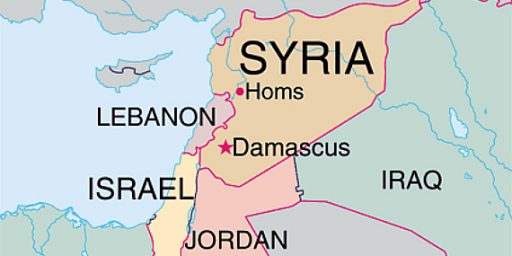Iraq Council Signs Interim Constitution
Iraq Council Signs Interim Constitution
The signing took place at a hastily arranged ceremony in Baghdad after Shiite members of the 25-member council dropped their objections to the document over the weekend.
Just before the signing, loud explosions echoed across central Baghdad. At least one of the blasts was caused by a rocket hitting a house, witnesses said, adding that there were no casualties. The U.S. Army said it had no immediate information.
The signing had been delayed twice — first by bomb attacks on Shiites last Tuesday that killed at least 181 people, and then by last-minute doubts among Shiites that forced a high-profile ceremony Friday to be abandoned.
Representatives of the five groups that backed out Friday spent the weekend in the holy city of Najaf talking with top clerics including Ayatollah Ali al-Sistani, who wields immense influence over Iraq’s 60 percent Shiite majority.
They announced Sunday that Sistani still had deep reservations about the document but had given them the go-ahead to sign it in the interests of advancing political transition.
Under a U.S. timetable, an Iraqi government is to take over sovereignty on June 30 and elections for a transitional assembly are to be held by the end of January next year.
Well, another hurdle has been cleared. I’m still not convinced that a transfer of sovereignty by June 30 is workable.




This is just as an important step for the U.S. as it is for Iraq.
Promoting freedom democracy in the Middle East is one of the long-term goals of the war against terrorism. President Bush set forth this strategy very eloquently in the Advance of Freedom speech he gave at the National Endowment for Democracy and the Three Pillars speech he gave at Whitehall Palace.
If this strategy is to have a chance to succeed, we must ensure that governmental structures are in place that will give freedom a chance. Iraq’s interim constitution seems to lay the groundwork to do just that.
—